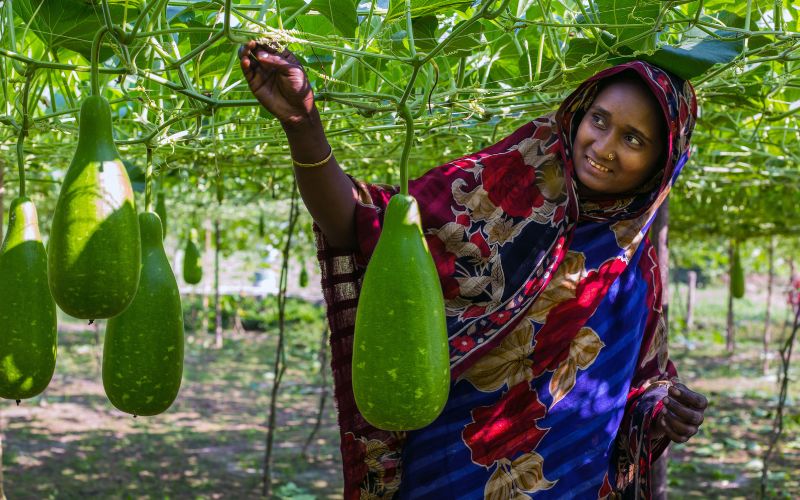Digital advisory tools: reaching last-mile users in India
PlantwisePlus presented its suite of digital advisory tools to end users at the recent AgTech 2023 conference in Andhra Pradesh, India. The PlantwisePlus digital tools are helping improve knowledge and uptake of integrated pest management (IPM) practices. As such, they align with Andhra Pradesh’s Natural Farming Initiative, which promotes the use of agricultural approaches that are in harmony with nature.
Mealy Plum Aphid: An Overview
The mealy plum aphid, or reed aphid, is a sap-sucking plant pest that is commercially important for fruit tree farmers. It is present across the globe and can cause significant damage in large numbers. Introduction Aphids are small, soft-bodied, sap-sucking bugs in the family Aphididae which cause extensive damage to plants when in large numbers.…
Digital innovation: integrating PlantwisePlus digital tools in Bangladesh
PlantwisePlus is developing and updating various digital tools for decision support and learning. In Bangladesh, these digital decision-support tools enable farmer advisors to serve farmers more effectively.
PlantwisePlus most read blogs of 2023
As 2023 draws to a close, we have tallied the numbers to present the most-read articles on the PlantwisePlus Blog this year. Plus a few firm favourites. Articles on the new PlantwisePlus tools and courses were some of the most read during 2023, as well as other blogs on key topics like one health and…
Update: New Pest & Disease Records (08 December 2023)
We’ve selected a few of the latest new geographic, host and species records for plant pests and diseases from CAB Abstracts. Records this month include the first report of leaf spot on soybean caused by Epicoccum sorghinum in Heilongjiang Province, China and information about three new alien spider mites from south-eastern France.
Recommendations made for plant clinic progress in Afghanistan
Plant clinics are an important way that we support farmers in Afghanistan. The programme helps smallholders and kitchen gardeners alike. It aims to give them the knowledge they need to protect their crops from pests and diseases. And by doing this, it helps to safeguard their crop yields and livelihoods.










